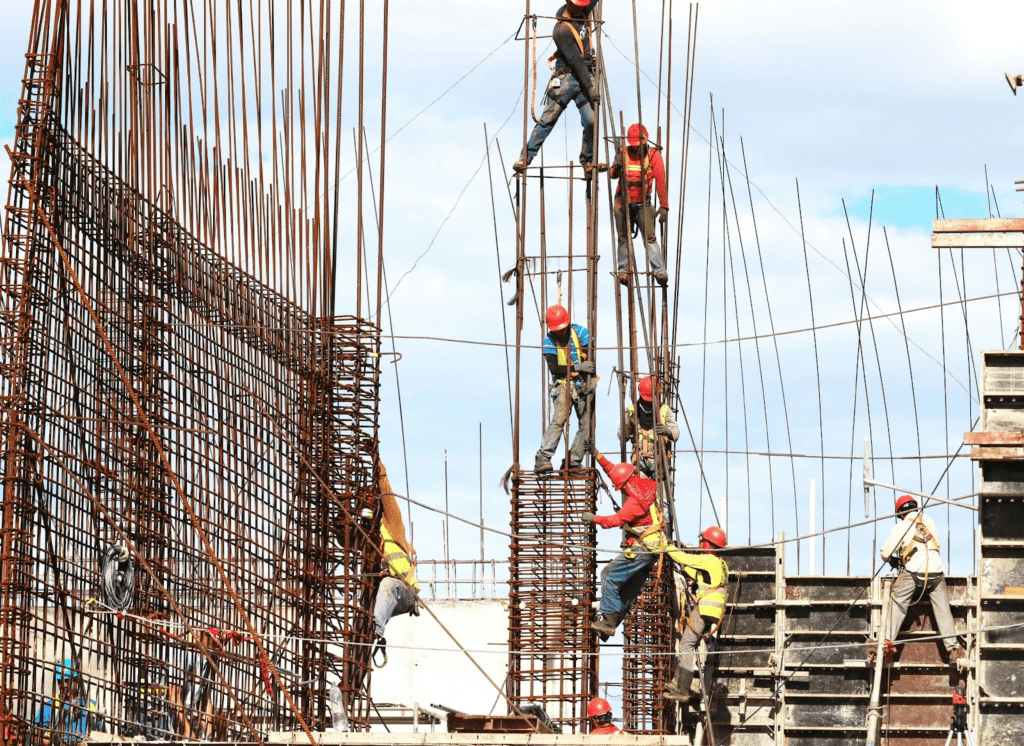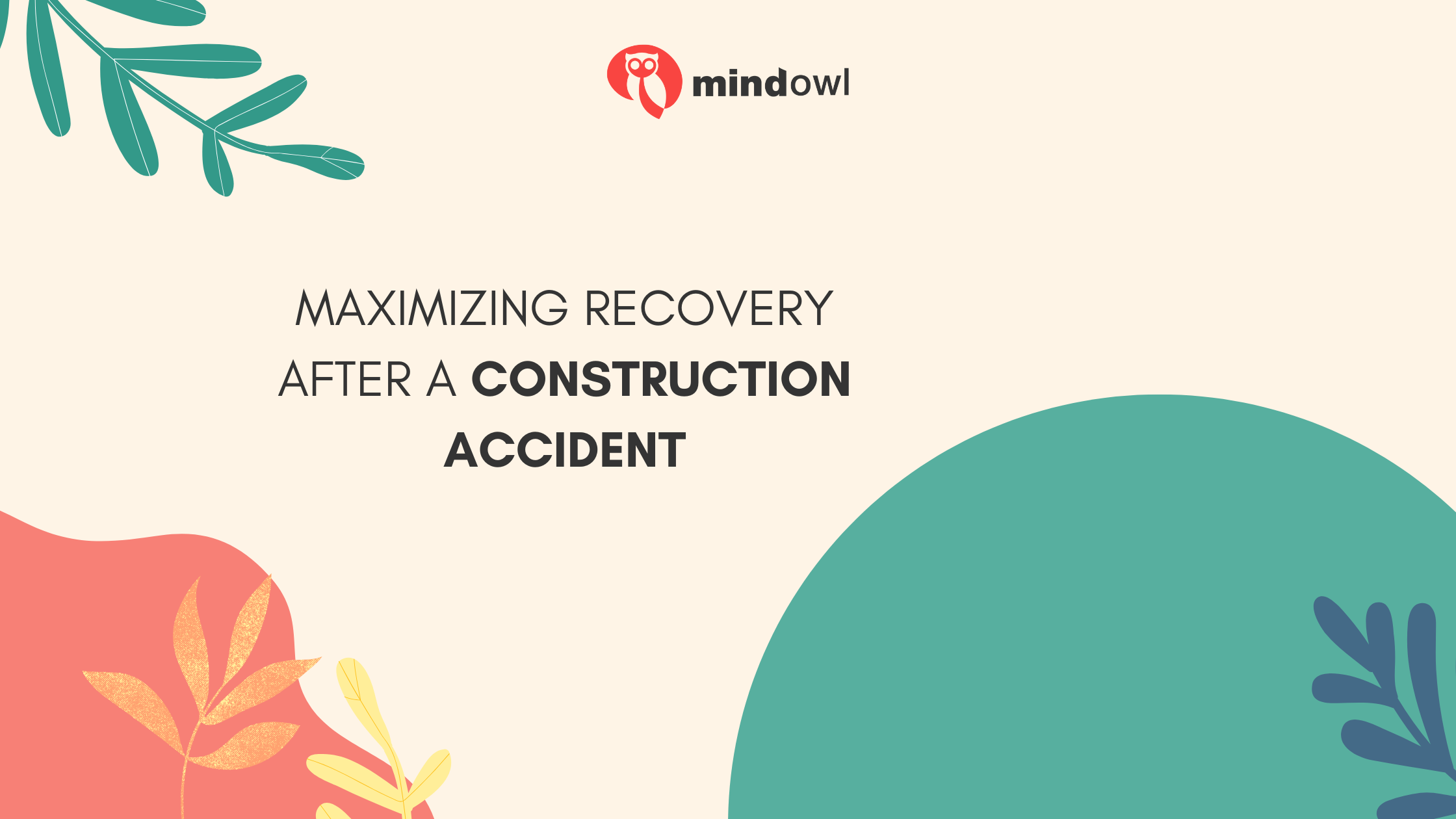Are you searching for the just compensation you deserve and a path to genuine well-being after a construction accident? While construction accidents often cause immediate physical harm, the less visible emotional toll can be just as significant and harder to overcome. Many workers struggle with anxiety, trauma, depression, and overwhelming stress after an injury. Unfortunately, these struggles are often overlooked in the fight for fair compensation.
True, lasting recovery is about more than legal or financial victory. It means caring for your whole self, finding new resilience, and building a mindful approach to healing. This guide empowers construction workers, their families, and advocates by providing a roadmap for maximizing compensation and well-being after a workplace accident.

Understanding the Full Impact of a Construction Accident
The dangers of construction work are well documented. In 2023 alone, over a thousand construction workers in the U.S. lost their lives in tragic workplace incidents—and countless more suffered life-altering injuries. If you’ve been injured in a construction accident in NYC, you may focus first on medical bills or lost wages. But to truly rebuild, it’s crucial to understand not just the visible injuries, but also the psychological trauma—how it can alter your mind, your relationships, and your sense of self.
The Unseen Wounds: Emotional and Psychological Aftereffects
Construction accidents can result in more than broken bones and strained muscles. Many survivors experience:
Post-traumatic stress disorder (PTSD):
- Flashbacks
- Nightmares
- Hypervigilance
- Strong emotional reactions long after the event
- Chronic anxiety: – Fear of returning to work
- Excessive worry about finances or health
- Panic symptoms
Depression: Hopelessness, withdrawal, fatigue, and loss of interest in activities once enjoyed.
Survivor’s guilt or grief: If an accident involves a fatality or serious injury to a coworker, workers may feel responsible or become overwhelmed emotionally.
Strained relationships: Changes in mood and the ability to participate in family life can put a strain on even strong relationships.
Unfortunately, these effects are easy to hide and are often dismissed by employers, insurance companies, and even the workers themselves.
Why Mental Health and Mindfulness Matter in the Recovery Process
The path to true recovery is holistic. Now, the best legal strategies routinely recommend comprehensive care, including psychological support, because research consistently shows that unaddressed mental health issues prolong physical healing, reduce quality of life, and increase the risk of future illness.
Mindfulness: A Resilient Response to Trauma
Mindfulness practices such as meditation, breathwork, and gentle movement have been proven to help people recover from trauma or major life changes. When used alongside professional therapy, they can:
- Reduce intrusive, distressing thoughts;
- Lower physiological stress and anxiety symptoms.
- Improve emotional regulation and sleep.
- Build a sense of safety, even in uncertain times.
- They can also provide daily tools for coping with pain, frustration, and grief.
Maximizing Compensation: Making Sure Mental Health Is Valued
Most construction accident survivors are familiar with receiving compensation for medical treatment and lost wages. However, you have the right to pursue much more, especially if psychological injuries disrupt your life, career, and relationships.
What a Comprehensive Settlement Can Include
- Direct Medical Costs: Hospital care, surgery, physical therapy, and more.
- Lost Income: Past and future wages, bonuses, and sometimes lost earning capacity.
- Permanent Disability: Lump sums or ongoing payments for long-term or permanent limitations.
- Mental Health Treatment: Psychotherapy, counseling, psychiatric medications, group support, and mindfulness-based programs.
- Pain and Suffering: “Non-economic damages” that include emotional distress, trauma reactions, and loss of enjoyment of life.
- Impact on Family: In some cases, compensation for the way injuries have affected your family relationships or ability to participate in home life.
A fair settlement doesn’t just cover physical healing—it must acknowledge and provide resources for the psychological impact, too.
Secret Ingredients for True, Whole-Person Recovery
Many workers and families unintentionally forgo compensation and support for healing. Here’s how to protect yourself:
1. Identify All Responsible Parties
- Construction accidents usually involve layers of liability: contractors, subcontractors, equipment manufacturers, property owners, and more. Each party may hold responsibility for both physical and emotional harm.
- Skilled attorneys investigate every angle, so compensation for therapy or ongoing trauma isn’t missed.
2. Document Every Aspect of Your Experience
- Keep a daily journal or use a symptoms tracker to document physical pain, emotional reactions, nightmares, or daily challenges.
- Include statements from family or coworkers about changes in your mood, behavior, or ability to participate in life.
3. Don’t Settle Until You Know the Full Impact
- Insurance companies are motivated to settle quickly and limit their costs—remember that workers’ comp claims cost the construction industry billions each year, and insurers are trained to minimize their share. Workers often accept early settlement offers before they even realize the depth or longevity of mental and emotional harm.
- Wait for a clear diagnosis and treatment plan from both medical and mental health providers before negotiating a settlement. Most emotional injuries are best evaluated over weeks or months, not days.
4. Get Thorough, Independent Medical and Psychological Assessments
- Company doctors may be pressured to downplay emotional symptoms. Seek independent therapists and physicians who are experienced in trauma care.
- Written opinions about the impact of anxiety, PTSD, depression, or grief strengthen your legal case and ensure your needs are covered in compensation.
5. Pursue Holistic Healing
- Ask about case management services through your attorney or worker advocacy groups. They may help you find therapists, mindfulness coaches, or support groups who understand the specific stresses of construction work.
Common Reasons Workers Leave Mental Health Unaddressed
Why do so many workers accept less than they deserve for their physical and mental health?
- Insurance company tactics: Adjusters may ignore, minimize, or outright dispute emotional distress. They rarely offer coverage for psychological care without evidence and legal pressure.
- Stigma: The construction culture often revolves around “toughness.” Emotional pain may be dismissed as weakness, which discourages workers from seeking help.
- Lack of knowledge: Many workers don’t know that emotional injuries are compensable, so they don’t mention them until it’s too late.
- Self-Advocacy Gaps: Handling a claim without experienced legal or mental health advocates almost guarantees lost benefits.
- Poor documentation: Emotional scars are real, but because they are invisible, you must diligently record your symptoms and their effect on your life.
Strategies for Maximizing Both Compensation and Psychological Healing
To truly rebuild your life, combine sound legal advice with ongoing self-care:
1. Document Everything, Every Day
- Track physical and emotional symptoms, missed work, and how the accident is affecting your day-to-day life.
2. Seek Multiple Professional Opinions
- Especially for psychological injuries, diagnoses from more than one mental health professional carry extra weight in negotiations or court.
3. Practice Mindfulness and Stress-Reduction Techniques
- Include evidence-based practices—breathwork, guided imagery, mindfulness-based stress reduction (MBSR)—in your healing plan. Many courts now recognize these as valid parts of an overall treatment regimen.
4. Don’t Settle Prematurely
- Insist on waiting until your physical and psychological health has stabilized—and you truly know what support you’ll need moving forward.
Going Beyond Workers’ Comp: Why Third-Party Claims Matter
Workers’ compensation is a crucial safety net, but it rarely meets the needs created by serious accidents. It usually restricts medical care to specific providers, limits income replacement, and does not account for pain, suffering, or lifelong emotional trauma.
Third-party claims—against those other than your employer—are often necessary for:
- Full coverage of therapy, counseling, and wellness treatments.
- Comprehensive payment for life quality losses.
- Compensation for the ongoing impacts on your mental and family health.
Mindful Next Steps: Taking Action for Your Whole Life
Advocate for Yourself and Your Future:
- Demand settlement resources for all your needs, not just medical bills.
- Ask for referrals to trauma specialists, mindfulness programs, and support groups.
- Know that advocacy is not selfish—your healing sets an example for others.
Practice Patience and Compassion:
- Emotional renewal and financial recovery both take time. Mindfulness can help you stay grounded while the process unfolds.
Reach Out:
- You don’t have to do this alone. Support from others who understand construction work, workplace trauma, or recovery journeys is vital for long-term wellness.
Wrapping Up: A Whole-Person Settlement Is the True Goal
Pursuing your financial rights after a construction accident is essential, but it’s only part of what genuine recovery looks like. Comprehensive healing involves caring for your mental health, developing new coping strategies, and regaining the ability to live with confidence and joy.
Maximizing your settlement is about more than just the numbers—it’s about investing in every aspect of your future. Stand up for the compensation you deserve and take mindful steps to support your emotional well-being as you rebuild your life.
You are more than your injury. With the right combination of legal empowerment and mindful self-care, healing is possible and within your reach.
MindOwl Founder – My own struggles in life have led me to this path of understanding the human condition. I graduated with a bachelor’s degree in philosophy before completing a master’s degree in psychology at Regent’s University London. I then completed a postgraduate diploma in philosophical counselling before being trained in ACT (Acceptance and commitment therapy).
I’ve spent the last eight years studying the encounter of meditative practices with modern psychology.

